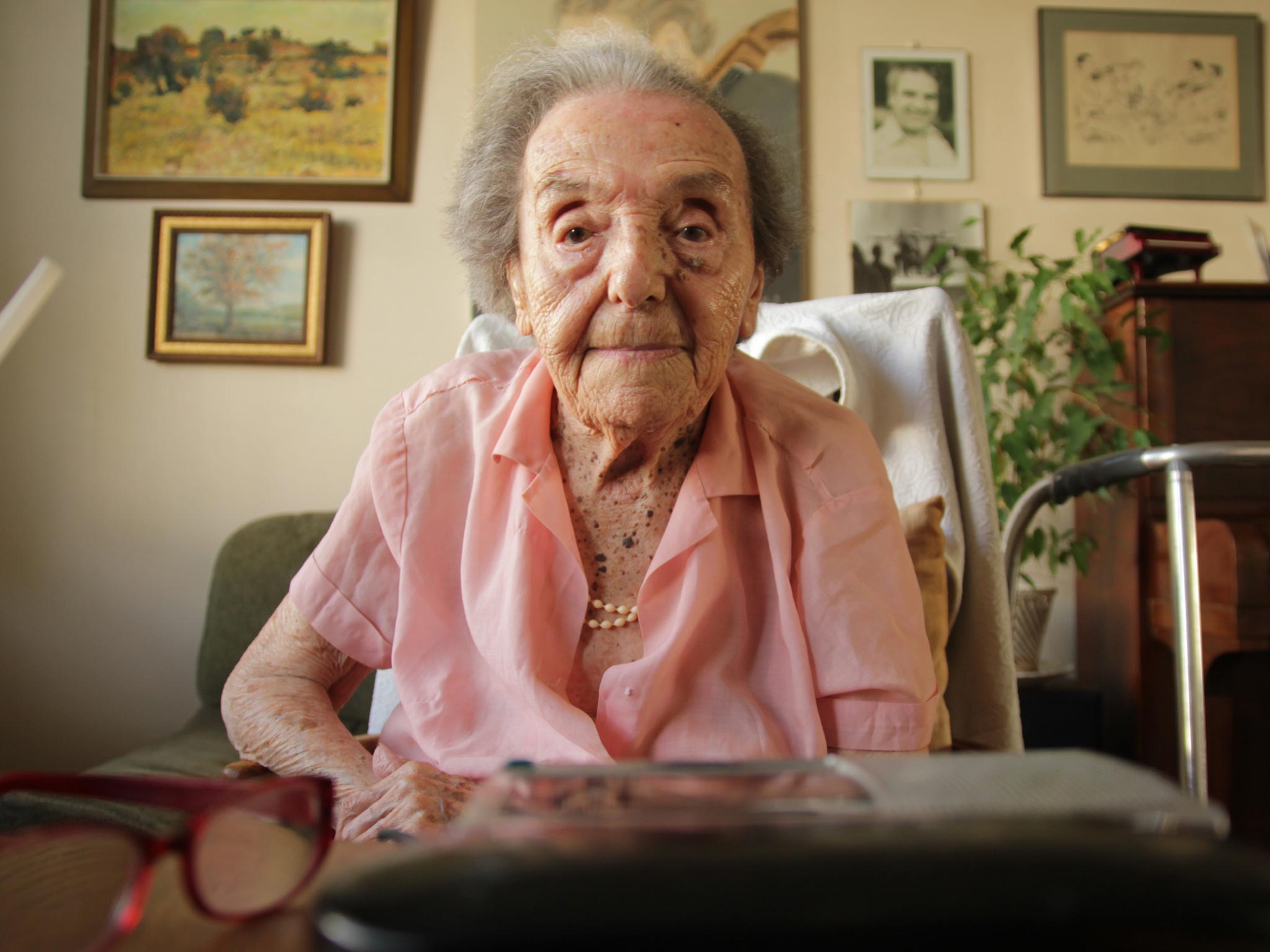Alice Herz-Sommer, the world’s oldest Holocaust survivor, said Beethoven was her religion. That's the effect great art can have
A leading concert pianist on the role that music played in an astonishing life story

Your support helps us to tell the story
From reproductive rights to climate change to Big Tech, The Independent is on the ground when the story is developing. Whether it's investigating the financials of Elon Musk's pro-Trump PAC or producing our latest documentary, 'The A Word', which shines a light on the American women fighting for reproductive rights, we know how important it is to parse out the facts from the messaging.
At such a critical moment in US history, we need reporters on the ground. Your donation allows us to keep sending journalists to speak to both sides of the story.
The Independent is trusted by Americans across the entire political spectrum. And unlike many other quality news outlets, we choose not to lock Americans out of our reporting and analysis with paywalls. We believe quality journalism should be available to everyone, paid for by those who can afford it.
Your support makes all the difference.When someone passes their 100th birthday, they gain entrance to a special human survivors’ club; when they reach 110, they become elite members; but when living a half century past retirement age includes the survival of walking away into freedom from the gates of the Terezin (or Theresienstadt) concentration camp, it almost seems like fiction – or a miracle.
Alice Herz-Sommer died on Sunday and this was the barest brushstroke of her astonishing life story. But outside that framework of years lived was a life filled with music and an attitude to that life which has been an inspiration for so many. Her lack of bitterness after losing her husband and many friends and family members in the camps, and the optimism and joy that seemed to fill her every day is immensely uplifting to read about.
Indeed, the word “miracle” came so frequently to her own lips: “The world is wonderful, it’s full of beauty and full of miracles. Our brain, the memory, how does it work? Not to speak of art and music… It is a miracle.”
But one thing that she said caught my attention: “I am Jewish, but Beethoven is my religion.” Such a statement raises so many interesting questions: Beethoven the man or Beethoven the musician? How is a composer a conduit for something greater than he or she? If so, a conduit for what? From where? Does great music have a moral influence… or not?
One of the things that kept Alice alive, physically and psychologically, during her terrible war-time suffering, were the concerts she gave with other inmates in Terezin. But the chilling fact is that the men operating the ovens and the evil political system fuelling them also loved and celebrated fine music. They would return home from a day of killing and weep over Schubert songs. It’s a moral conundrum that challenges any easy assessment of the mystery of human behaviour and its capacity for evil.
Of course, Alice’s comment about Beethoven was not meant to be read theologically, and, for someone who lived through such toxic times, a suspicion of religion is perhaps understandable. But maybe there is a path shared between great art and great living, which is what religion is ultimately about. To lift us out of ourselves, to point beyond, to awaken a sense of the “other”… all of this can flow from music. As nuclear power can keep a life-support machine working as well as destroy a city so music can inspire us to great things as well as anaesthetise us when we have become monsters.
Not long before Alice died, she said: “I think I am in my last days but it doesn’t really matter because I have had such a beautiful life. And life is beautiful, love is beautiful, nature and music are beautiful. Everything we experience is a gift, a present we should cherish and pass on to those we love.”
If Beethoven is the source of such radiant wisdom, then who am I to argue? Beethoven is certainly a composer who takes us to the rarest spiritual peaks, whose striving and struggling, whose ecstatic highs and lows are some of the greatest expressions of the human spirit in artistic history. But then I can’t help wonder: who does Beethoven worship? I imagine Alice is discovering the answer to that question this very day.
Stephen Hough CBE is a concert pianist who blogs at stephenhough.com. His latest recording, ‘In The Night’, is released in May on the Hyperion label
Join our commenting forum
Join thought-provoking conversations, follow other Independent readers and see their replies
0Comments